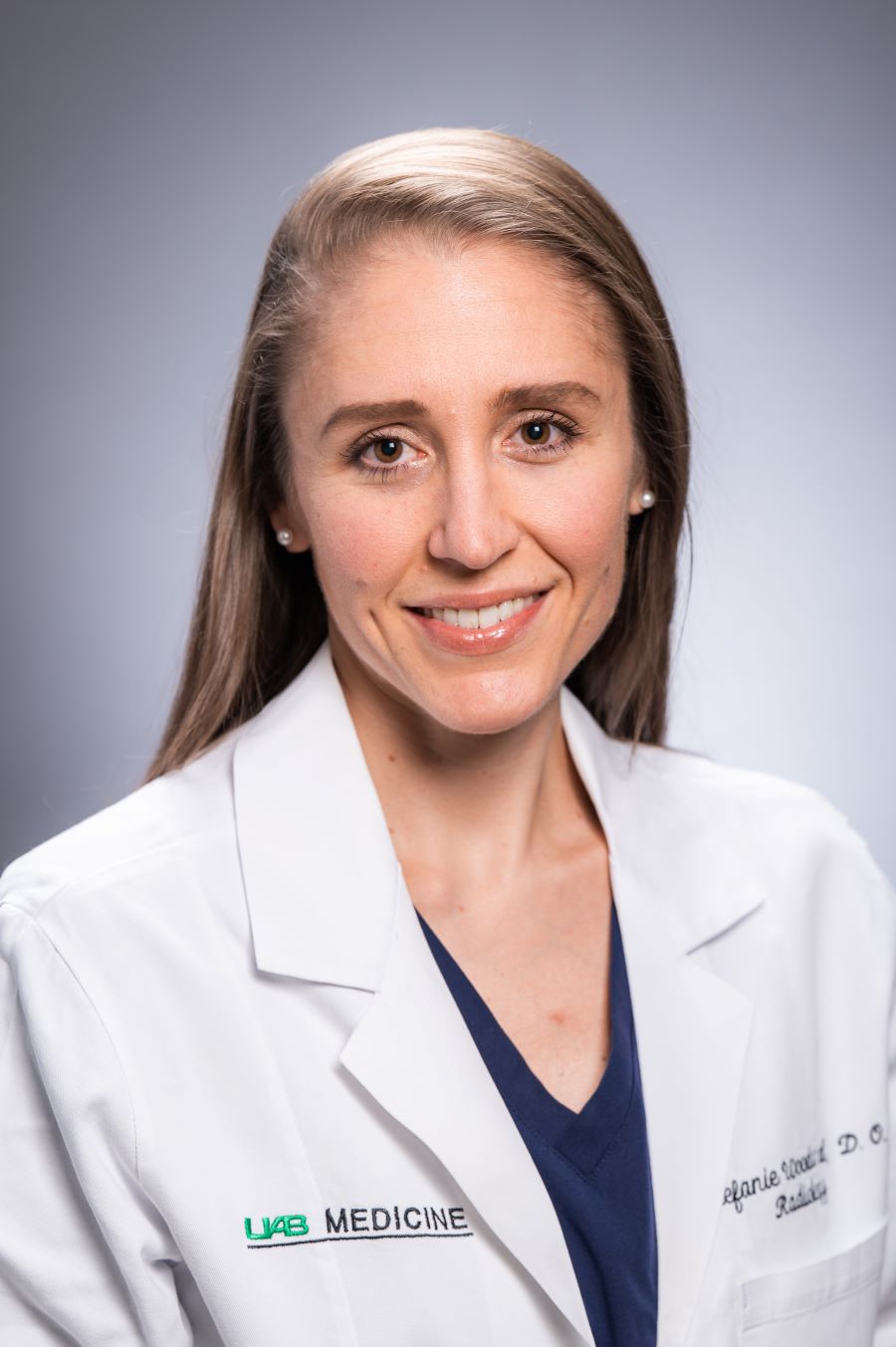Early detection of breast cancer saves lives. Yet myths and misconceptions often prevent people from getting the screenings they need. Stefanie Woodard, D.O., associate professor and chief of breast imaging in the Department of Radiology, helps separate facts from fiction.

Myth 1: Only women with a family history need screenings.
Fact: Most people diagnosed with breast cancer have no family history. Age, reproductive history, and lifestyle also play roles.
“Annual screening is important for all women,” Woodard said. “Waiting until symptoms appear can mean catching cancer at a later, less treatable stage.”
Myth 2: Mammograms expose you to dangerous radiation.
Fact: The radiation amount from a mammogram is very low, comparable to a single cross-country flight.
“The benefits of early detection far outweigh the minimal risk from radiation exposure,” Woodard said.
Myth 3: Mammograms aren’t necessary until age 50.
Fact: For average-risk patients, screening mammography should begin at age 40. Patients who have an elevated risk of developing breast cancer may benefit from earlier screening.
“All patients should have a breast cancer risk assessment by age 25 to identify those who may need earlier screening,” Woodard said.
Myth 4: Breast cancer always causes a lump.
Fact: Not all breast cancers form noticeable lumps. Mammograms can detect cancers long before they are palpable.
“Annual screening is important for detecting early cancers before they form lumps, as well as the more insidious cancers that may take longer to develop into lumps,” Woodard said.
Myth 5: Mammograms always detect cancer.
Fact: While mammograms are highly effective, no test is perfect. Dense breast tissue can make detection more challenging.
“Dense breast tissue reduces the accuracy of mammography and is associated with an increased risk of developing breast cancer,” Woodard said. “Supplemental screening options, such as breast MRI and contrast-enhanced mammography, are available for patients with dense breasts.”
Myth 6: Living a healthy lifestyle means I don’t need a screening.
Fact: Healthy habits lower risk but don’t eliminate it. Even people with no known risk factors can develop breast cancer.
“Approximately one in eight women will develop breast cancer over a lifetime, regardless of lifestyle,” Woodard said. “Screening beginning at age 40 is recommended unless earlier screening is indicated.”
Breast cancer screening saves lives by detecting disease at earlier, more treatable stages. Don’t let myths or misconceptions keep you from regular care.